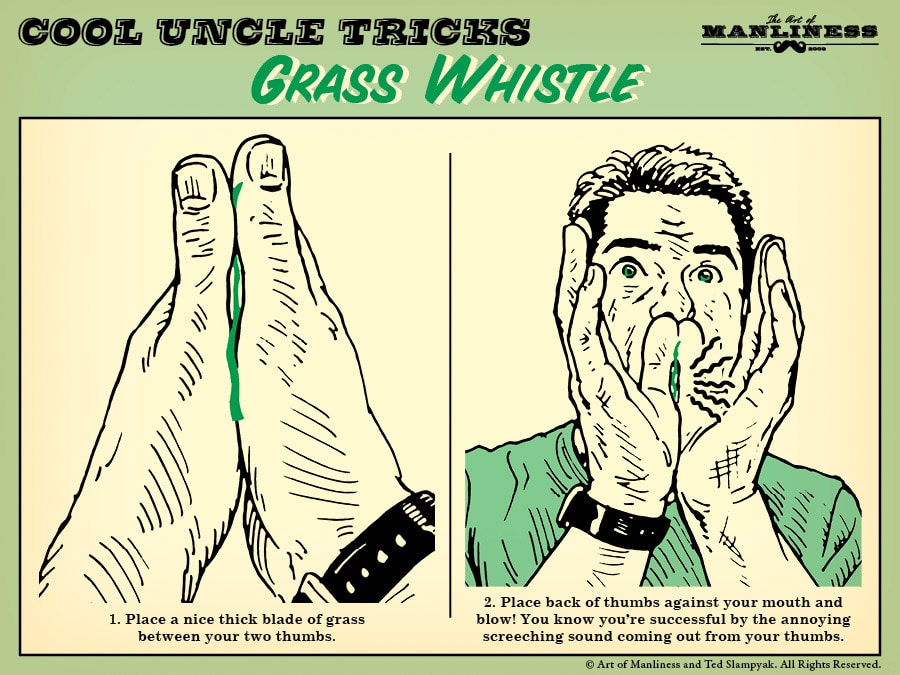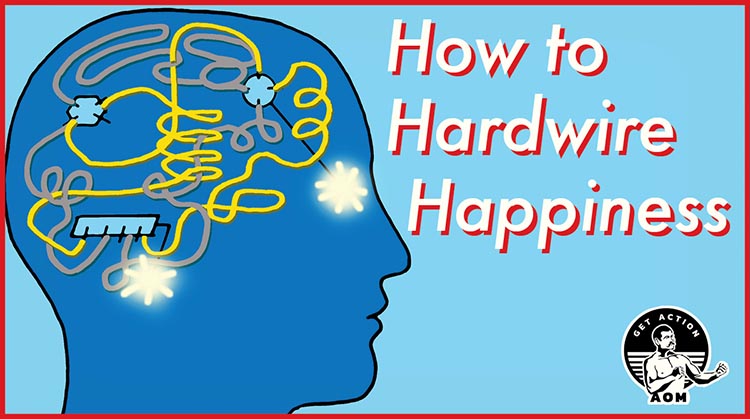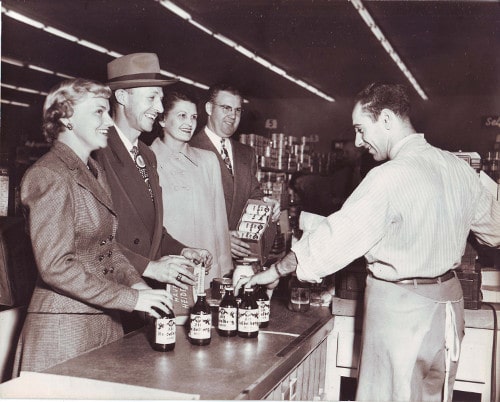
Men have a certain innate restlessness. We’re always looking for a new adventure, wanting to feel like we’re progressing in life, and wondering if the grass might be greener somewhere else.
Our ever-searching nature can be a good thing if it’s channeled into pursuits that really lead to greater happiness and satisfaction. But restlessness can also get us terribly off track if we expend our energy journeying down avenues that are really dead ends.
Our Happiness Range
Psychologists have an equation they use to “compute” happiness:
H=S+C+V
H=Happiness
S=Set point
Perhaps 50% of our happiness and satisfaction in life is genetic in origin. Some people are just born naturally jollier than others, and there’s nothing we can do about it. This is our happiness “set point.” But it’s more accurate to call it a “set range.” We can move our happiness ticker to the upper range of our happiness potential or the lower range. What causes the ticker to move? Read on.
C=Conditions
There are some things we can’t change (or do much to change) about ourselves-ethnicity, gender, health, attractiveness, etc. But these conditions don’t affect your happiness as much as you might think because of something called the adaption principle. Our minds are sensitive to changes in our lives, and these changes cause our happiness ticker to move up or down. But we quickly get used to those changes and the ticker settles right back into our normal range. This is why, as unbelievable as it sounds, both lottery winners and those who are paralyzed in an accident find their happiness levels right back to their pre-windfall/tragedy levels in less than a year.
V=Voluntary Conditions
Unlike other conditions, voluntary conditions are those things you choose-relationships, job, hobbies, location, etc. These things can have a greater impact on your happiness because they are less susceptible to the adaption principle.
So the key to finding the truly greener pastures is to concentrate on going after the right things-the things that really will make you happier-instead of expending your energy in pursuit of a happiness mirage.
This is where the economics of happiness comes in. Numerous studies have revealed what factors in life are correlated with greater happiness. Now granted, these things correlate to greater happiness; they don’t necessarily cause happiness. But I always say it’s at least worth checking out where the happy people congregate. Below we highlight eight areas of a man’s life that we often associate with increasing or decreasing our happiness and analyze if the grass really is greener in those pastures.
Money

“As the level of wealth has doubled or tripled in the last fifty years in many industrialized nations, the levels of happiness and satisfaction with life that people report have not changed, and depression has actually become more common.” –The Happiness Hypothesis
Perhaps no factor’s influence on happiness has been so examined and so much a part of the popular culture as money and wealth. There are those who say that money doesn’t buy happiness, and those that counter that the first group is simply not shopping at the right stores.
The answer to whether money can buy happiness is a crucial one, as it influences many of the decisions we are faced with in life. Should we pursue the major that leads to a more lucrative career or stick with studying what we’re passionate about? Should we take the promotion that offers more money but will allow us less time with our family?
Numerous studies have shown that money does buy happiness….to a point. To the extent that money allows you to provide for your basic needs plus a little wiggle room, it does make you happier, but once you move into the middle-class, its effect wanes. The most recent study of this issue was published in the Proceedings of the National Academy of Sciences and found that beyond a household income of $75,000, money “does nothing for happiness, enjoyment, sadness, or stress.” Day to day happiness did not increase after the 75k mark, although the feeling of being satisfied overall with one’s life did continue to rise with income. A massive global Gallup poll found similar results; wealth was correlated with life satisfaction but not the positive feelings a person experiences from day to day.
That life satisfaction but not day-to-day happiness increases with wealth can be chalked up to the fact that how much we make relative to other people is more important than the absolute amount of our income. We derive satisfaction from feeling like we’re higher up in society’s pecking order. But no matter what income level people are at-rich or poor-they always think making 20% would increase their happiness. Which is why even though the standard of living has been rising for many decades, people aren’t getting any happier.
So there’s a bit of truth to the idea that money buys happiness. But there’s also truth to the maxim that people who don’t think so aren’t “shopping” at the right places. Which brings us to:
Material Possessions

The amount of money you make is only part of the story; how you spend that money also makes a big difference.
Conspicuous consumption-buying the bigger house, the fancy car, and the designer duds- doesn’t correlate with greater happiness because of something called the “hedonic treadmill;” you very quickly adapt to your new things and need to buy more stuff to feel the rush again. A new car gives you a boost every time you drive it for the first few weeks; a year later it’s simply your everyday mode of transportation. And your happiness with material goods is very dependent on comparing your stuff with other people’s; you’re ecstatic about your new flat-screen television until your neighbor shows you his 3-D set-up.
But people who do more “prosocial spending,” using their money to buy things for others and to donate to charity instead of getting things for themselves do experience a lasting increase in their happiness. But our inner-caveman fights this conclusion; humans naturally want to display their status to other members of the tribe in conspicuous ways.
Another way to get more happiness bang for your buck is to use your money to buy experiences instead of things. Spending your money on vacations, meals, movies, and concerts increases your happiness more than spending it on material goods. Experiences strengthen one of the greatest contributors to real happiness-our social ties. Activities give us a chance to spend time with other people, create mutual memories we can look back on together later, and provide us with interesting stories to tell people who weren’t even there. And experiences are less subject to the effect of the hedonic treadmill; our memories actually get better with time. We forget about the negative things that happened on our trips and simply remember how great it was.
Commute

When people are asked about activities that make them happy, sex tops the list and commuting gets the very bottom spot. Nevertheless, people consistently believe that having a cheaper and bigger house or a higher paying job will compensate for having a longer commute. They are wrong. Two Swiss economists who studied the effect of commuting on happiness found that such factors could not make up for the misery created by a long commute.
What accounts for this “commuter’s paradox?”Obviously, commuting is simply unpleasant; it lessens your time with your family, costs money, and stresses you out. And not only is it unpleasant for the commuter, it diminishes the happiness of his partner as well. But more importantly, while many voluntary conditions don’t affect our happiness in the long term because we acclimate to them, people never get accustomed to their daily slog to work because sometimes the traffic is awful and sometimes it’s not. Or as Harvard psychologist Daniel Gilbert put it, “Driving in traffic is a different kind of hell every day.”
A man would have to make a full 40% more money in a job to compensate for a longer commute. And yet people will often still choose the bigger house over the smaller one and the chance to walk to work. Why? They make a “weighting mistake,” an error explained by author Jonah Leher and the psychologist Ap Dijksterhuis:
“Consider two housing options: a three bedroom apartment that is located in the middle of a city, with a ten minute commute time, or a five bedroom McMansion on the urban outskirts, with a forty-five minute commute. “People will think about this trade-off for a long time,” Dijksterhuis says. “And most them will eventually choose the large house. After all, a third bathroom or extra bedroom is very important for when grandma and grandpa come over for Christmas, whereas driving two hours each day is really not that bad.” What’s interesting, Dijksterhuis says, is that the more time people spend deliberating, the more important that extra space becomes. They’ll imagine all sorts of scenarios (a big birthday party, Thanksgiving dinner, another child) that will turn the suburban house into an absolute necessity. The pain of a lengthy commute, meanwhile, will seem less and less significant, at least when compared to the allure of an extra bathroom. But, as Dijksterhuis points out, that reasoning process is exactly backwards: “The additional bathroom is a completely superfluous asset for at least 362 or 363 days each year, whereas a long commute does become a burden after a while.”
On another note, when deciding where to live, be sure to factor in noise, another condition we never fully acclimate to. You may think living in your dream house will compensate for it being positioned right by an incredibly busy intersection, but there’s a good chance it won’t.
Job

Perhaps no factor causes a man as much restlessness as his job. A man unhappy with his occupation will spend a good deal of time wondering if he wouldn’t be happier in a different line of work altogether. Depending on what line of work he’s fantasizing about, he might be right.
Happiness does cluster in certain jobs, particularly those that involve serving other people; in a survey on occupational happiness and satisfaction, jobs like clergyman, firefighter, and special education teacher topped the list.
But other studies have shown that any job can give your happiness if it utilizes your signature strengths and does four things:
1. stretches a person without defeating him
2. provides clear goals
3. provides unambiguous feedback
4. provides a sense of control
And you don’t have to wait for your job to give you these things or necessarily switch to a new job; you can look for ways to incorporate these things into your existing position.
Location
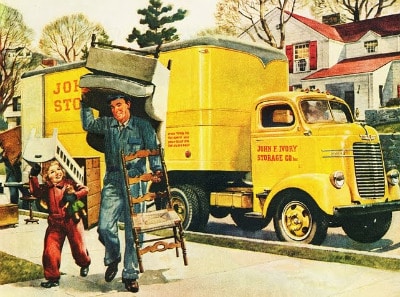
Next to a job, a man’s locale creates the most wanderlust. Who hasn’t wondered on a bad day if they wouldn’t be much happier living in Austin or Portland instead of Toledo? But will packing up your bags and moving making you happier?
When Professor Richard Florida surveyed 27,000 people on the effect of place on their happiness, he found that location formed “the third leg in the triangle of our well-being, alongside our personal relationships and our work.” That location would be one of the top three factors influencing our happiness should not be surprising-after all, place in many ways affects many other areas of our lives: what jobs are available, what people we’ll form or keep relationships with, how stressed or relaxed we are, our health, what hobbies we can pursue and so on.
Age
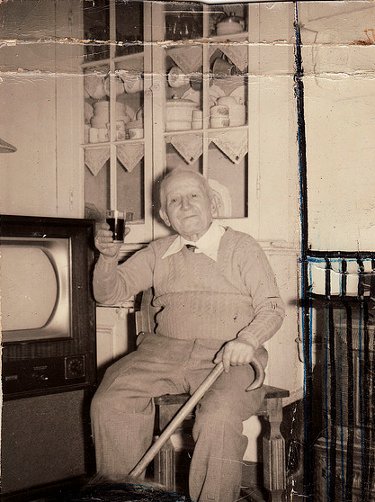
You would be happier if you could get back to your college days, back to your 20s, right? Wrong. Happiness does peak at age 18 (man, I miss high school) but then it goes downhill until….age 50. It turns out that being middle-aged isn’t the living funeral you thought it was. In fact most people are happier at age 85 than age 18. And it’s not because children have flown the coop and you have more time to play golf; the happiness reported by the elderly and middle-aged was not premised on children, gender, marriage status, or job. For reasons researchers do not yet understand, your brain just starts feeling better as you get grayer. So you can stop searching the internet for a time machine and look forward to swapping your chucks for orthopedic shoes.
Relationships

“An ideology of extreme personal freedom can be dangerous because it encourages people to leave homes, jobs, cities, and marriage in search of personal and professional fulfillment, thereby breaking the relationships that were probably their best hope for such fulfillment.” The Happiness Hypothesis
Humans are social creatures; it’s bred into us by evolution. Without this need for social ties we wouldn’t have banded together to survive the hostile dangers of prehistoric life. Thus, to be exiled from the tribe was a punishment worse than death.
So it’s not surprising that the most consistent factor in happiness is the strength and extent of our social network. Whether we’re introverts or extroverts, spending time with others greatly boosts our well-being. Our relationships give us a sense of belonging, identity, security, support, and fun. Study after study has found that having strong, positive relationships with family, spouse, children, and friends provides the biggest boon to our happiness.
There may be a few lone wolves that can live in the Alaskan wilderness for decades and be as happy as pie, but for most of us, we never get to used to isolation and loneliness.
Sex

So what about sex? Many a man has felt that if he were only having more sex with more women he’d be a lot happier. True? Well yes to the first and no to the second. Having more sex does indeed make you happier. How much happier? Even a modest jump-going from having sex less than once a month to at least once a week is equivalent to adding $50,000 to your income. After you’re getting some once a week, the effect of frequency of sex on your happiness diminishes.
But the number of sexual partners a year that maximizes one’s happiness? 100? 25? One. Apparently monogamy is pretty sexy.
Conclusion
So to summarize, things that correlate to happiness include:
- at least $75,000 income
- spending money on other people and charity
- spending money on experiences over material goods
- living close to your job
- being older
- having a satisfying job
- strong social ties
- regular, monogamous sex
So you may be wasting your time:
- trying to be extremely wealthy
- wishing your were back in your 20s
- buying a bunch of junk
- enduring a lengthy commute to your job so you can have a bigger house
- being Boo Radley
- involuntary celibacy
In the end though, happiness really comes down to attitude and taking pleasure in the small things in life. I’ve known men who worked crappy jobs in deadbeat towns and still led happy lives. They learned to enjoy even the smallest of life’s pleasures. A good book, delicious food, and the beauty and refreshment of the outdoors. Instead of focusing on what they didn’t have, these men focused on all the things they had going for them. They fostered an attitude of gratitude. And actually, there’s a study that proves the truth of this age-old bit of wisdom, too.




